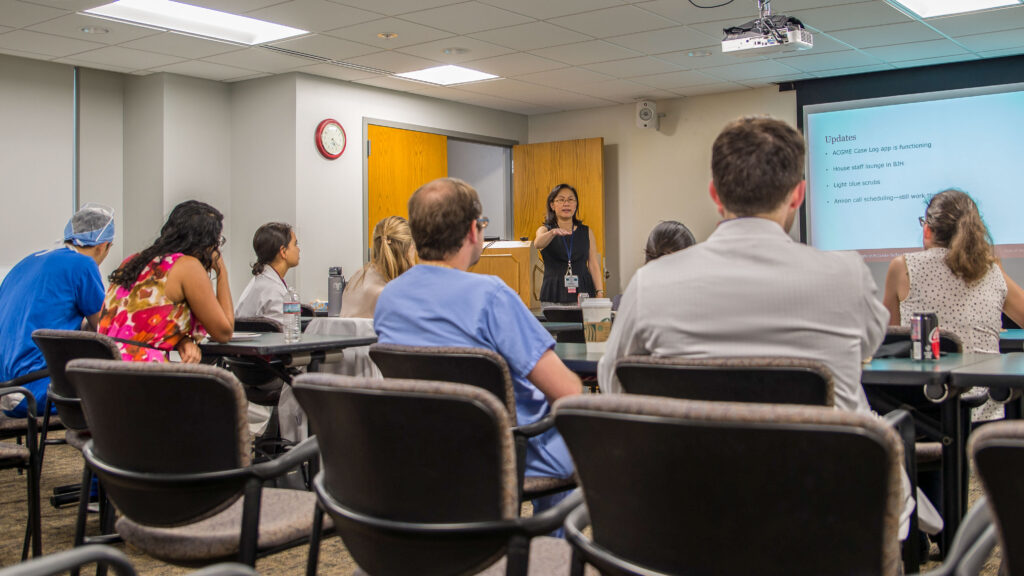More than a year after restrictions were put into place to combat the COVID-19 pandemic, things are starting to get back to normal for otolaryngology residents. Last month, resident meetings and core curriculum sessions started to transition from purely virtual events to a hybrid format – a mix of in-person and virtual components.

Director, Resident Education
Director of Resident Education Judith Lieu, MD, has been looking forward to this transition for some time.
“We are very social creatures,” she said. “There is more interaction and participation when we are together in person rather than behind a name or picture on Zoom. When we are eliciting opinions and discussion, in-person participation is far better than virtual.”
What does a hybrid meeting look like?
Hybrid in this sense means a combination of virtual and in-person participants in a meeting or educational event. The Ogura Learning Center, the Department of Otolaryngology’s primary auditorium for Wednesday morning didactics, has been inspected by the medical school and approved for a total occupancy of 24 meeting participants. That means most of the department’s 28 residents could attend in person. Typically, those residents who need to be at an offsite clinic location attend virtually.
To provide the best experience, two cameras will be used – one in the back of the room to show the presenter and one in the front of the room to show the physical audience. This allows virtual attendees to feel like they are part of the group.
“I am absolutely looking forward to getting back together with my co-residents,” said Sebastian Sciegienka, MD. “We are a very close-knit group, and I’ve missed seeing all my colleagues on a regular basis. Plus, those residents not at Barnes can Zoom in to participate. It’s the best of both worlds!”
Is there risk involved?
According to Dr. Lieu, the risk of resuming any in-person gathering is that it could serve as a superspreader event for COVID. However, since social distancing measures and masking have worked to keep the group safe over the past year, in-person events will continue to follow guidelines to minimize risk of infection. In addition, no food will be served, so unmasking will be kept to a minimum.
“Currently, hybrid meetings are meant to be used for educational and work gatherings, not for social events,” explained Lieu. “We are complying with School of Medicine and CDC guidelines regarding social events—only in personal homes/venues, with others who are vaccinated, and in small groups, especially if unmasked.”
“The recent in-person resident meeting was definitely a breath of fresh air,” offered Ethan Craig, MD. “This new hybrid format will make us all very happy.”
